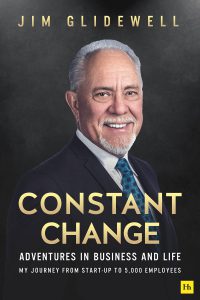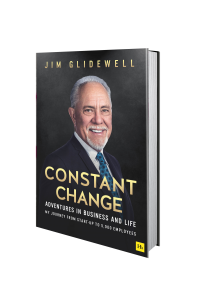Every reader picks up a book with their own individual personal and professional histories. This results in a set of inherent biases which may influence how each reader elects to interpret an author. I am no different.
My work as consultant to law firms, auditing dental Medicaid provider records for legislators and attorneys, and peer review has opened my eyes to much of the dental industry’s darker elements. Many of those who profited most handsomely within the dental industry were dishonest and unethical in their actions. Others were very honorable and ethical.
Unfortunately, at the very pinnacle of financial success are probably as many or more scoundrels versus paragons of virtue. Most of the more disturbing types in dentistry are frequently no longer or never were licensed dentists. These parasites operate in a vast array of positions negatively impacting the dental profession and the public welfare.
Such was my prejudice in initiating this read. I anticipated self-serving pabulum dished out by a surrogate ghost writer. This book would be one more trophy, along with a private jet, an antique auto collection, a luxury skybox at their favorite sports arena, and multiple mansion homes all to validate the empty soul of one of our nation’s elites.
I was wrong and thoroughly enjoyed Jim Glidewell’s memoir, entitled Constant Change: Adventures in Business and Life. His journey to achieve success as owner, founder, and president of Glidewell Dental Laboratories, the world’s largest dental laboratory, was a riveting adventure. Glidewell started with nothing and built up a company with over 5,000 employees and over $500 Mil in annual revenue.
This was absolutely not a straight line path.
Numbers of risks were taken with no guaranteed outcomes. Decisions made by Glidewell ran in direct contrast to much conventional thinking in the dental industry, financial industry, and definitely in opposition to the “money boys” in private equity. Glidewell’s early modest upbringing offers insights. Glidewell states these early hard times worked to give him advantages.
Glidewell was born at the conclusion of World War II. His family survived not only the War years, which were rife with uncertainties and rationing, but the trials of the Great Depression. He points to his humble experiences on his grandfather’s rural Kentucky subsistence farm as pivotal.
Glidewell’s mother abandoned her family due to what today would likely be diagnosed as post-partum depression. His father, a career railroad man, relocated the family to then, the sleepy community of Las Vegas, Nevada. There Glidewell graduated high school, but only by the thinnest of margins.
Glidewell then served as a Vietnam era enlistee in the US Navy. He later married and entered community college on the GI Bill at Orange Coast College in Costa Mesa, California. At times, he slept in his car to save money. His goal was to obtain an associate degree in dental technology and have means to support his family.
Those early experiences were vastly different from the get-rich-quick path of private equity investors, who rollover dental companies every three-to-five years.
Subsequently, Glidewell covers the pain of two failed marriages and his hyper-focus on the growth of his dental lab business from its onset in 1970. Men of his generation are generally not inclined to openly express deep emotions. It would have been a sign of weakness. Yet, Glidewell admits his shortcomings, takes responsibility, and sought to move forward with hard found knowledge.
Glidewell attributed much of his company’s success to continually reinvesting in his facilities and personnel. As sole owner, Glidewell decided to return profits back into the company, as shareholder distributions were not required. Glidewell elected not to live a life of luxury, especially in the early years, so that added moneys would also go toward company growth.
At various periods, Glidewell facilitated company expansion with borrowed money. More important than borrowing money, utilizing cash flow and accounts receivable as collateral, Glidewell put up his various California real estate holdings.
This was one aspect in which the growth of the southern California commercial real estate market compounded Glidewell’s luck, most of which Glidewell made for himself. While others would make their fortunes from other people’s money, be it from private equity offerings of dental support organization (DSO) investment, or subprime bond ventures for various dental firms, Glidewell maintained full control of sourcing money. He answered to no outside partners or silent investors. The former US Navy man captained his own ship, and eventually a powerful armada.
An unspoken repeated theme in Glidewell’s work is his reliance on personnel who are motivated and achieve positive results. Very often these are persons with an arduous immigrant background. Glidewell discriminates toward staff who are industrious and honest. Others usually get weeded out in the short or long-term.
In our modern times with equity and “woke” politics to the fore, Glidewell Labs achieves an incredible diversity by simply focusing on individual merit. As a devotee of Ayn Rand, Glidewell places great attention on the individual, and efforts to generate common objectives for both the employee and company. Individual rights and the wellbeing of each employee must be balanced with company goals.
This is not a top-down collectivist dictatorship. As such, employees are attracted from an array of ethnic and racial backgrounds. Artificially imposed employment quotas are not required, and are too frequently observed by companies run by snarky virtue-signaling neo-conservatives or neo-liberals.
Glidewell is a huge proponent of vertical integration. He desires all services for his companies be performed in-house, to the extent feasible. This ranges from cabinet fabrication, attorney services, marketing, and even new product research and development. He argues that outsourcing may save on apparent expenses but cost excessively in time spent getting an outside vendor up-to-speed with Glidewell Labs.
Glidewell disputes modern theory of just-in-time supplies and delivery. He generally insists upon excess capacity, which seemingly costs a company more. He makes a convincing point that “just-in-time” hinders growth capability.
A slight excess in personnel, facility space, and materials on-hand are essentials to jumpstart company expansion. One of Glidewell’s essential policies is growth, growth, and more growth.
He wants products out in a timely manner, and every effort made to facilitate new doctor/customers. He concedes many doctors are fickle customers, and he desires to expand business offerings to them. Marketing and limited discounts are deployed extensively. In every case, Glidewell must meet immediate expanded demand or face marketplace rejection.
The addendum at the book’s conclusion offers more insights. Glidewell was hospitalized for two-weeks during the time of the COVID-19 pandemic. Unquestionably, he examined his legacy.
Business was lost, as it was throughout the dental industry. Employees were furloughed, to the pain and consternation of Glidewell. Long-term personnel and friends were let go. Glidewell describes it as “the lowest point in my professional career.”
Yes, the company rebounded. Many of Glidewell’s family work for his company in various positions. His is a proud legacy with some regrets.
As the book title states, change is the constant in business. Innovation is inevitable. One must adapt to change, and ideally be at the forefront. Those in the dental industry, whether they be doctors, dental laboratories, or supply vendors must accept change, or eventually die out.
However, Glidewell offers a caveat in his memoir about certain change being short-lived.
He specifically cited multiple innovative dental ceramic materials which failed to gain standing in the marketplace. Here today and gone tomorrow.
The same may be true for novel business models within the dental industry. Paradigms of dental industry design and function may prosper or diminish. Glidewell, being a consummate gentleman, only implies with few details, by the mention of certain conflicts inflicted upon Glidewell Labs by outside entities. New or old, nothing is assured. Time will tell.
Constant Change by Jim Glidewell is available through publisher Harriman House and Amazon Books.
In 235-pages, Glidewell offers a singular view into the world of the dental laboratory industry and American business.
ABOUT THE AUTHOR
Dr. Michael W. Davis practices general dentistry in Santa Fe, NM. He also provides attorney clients with legal expert witness work and consultation. Davis also currently chairs the Santa Fe District Dental Society Peer Review Committee. He can be reached at MWDavisDDS@Comcast.net.














